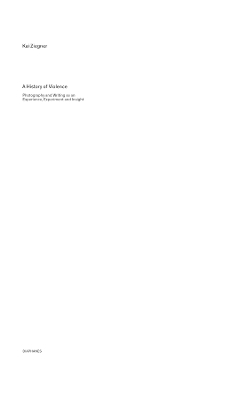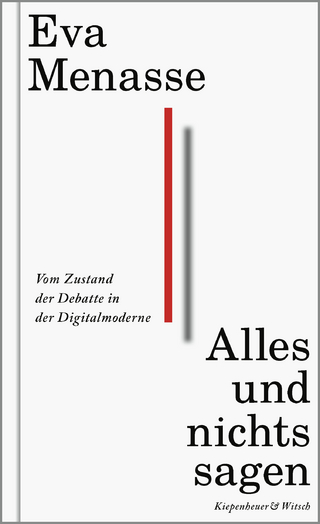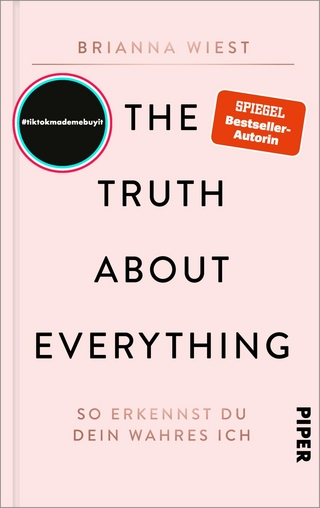
A History of Violence
Photography and Writing as an Experience, Experiment and Insight
Seiten
2025
diaphanes AG (Verlag)
978-3-0358-0645-8 (ISBN)
diaphanes AG (Verlag)
978-3-0358-0645-8 (ISBN)
- Noch nicht erschienen (ca. Januar 2025)
- Versandkostenfrei innerhalb Deutschlands
- Auch auf Rechnung
- Verfügbarkeit in der Filiale vor Ort prüfen
- Artikel merken
An artistic study of the Wendezeit in East Germany.
The focus of this narrative-analytical text-photo-montage is the so-called Wendezeit in East Germany, the years after the reunification, and the individual and collective outbreaks of violence that accompanied this radical change. Based on personal experiences and trained on literary and theoretical works such as Alexander Kluge’s Case Histories, Klaus Theweleit’s Male Fantasies, and W.G. Sebald’s novel Austerlitz, Kai Ziegner reflects on remembrance and testimony in a way that is as critical as it is experimental.
Where and how do authoritarian regimes and structures persist across generations? What scars can be read on the fault lines of disruptive processes and how to deal with—not only historical—situations in which the protagonists are victims and perpetrators at the same time? Ziegner’s artistic research shows how the unpresentable can become visible, how the ambiguous can be told, and how a differentiated processing can be made possible.
The focus of this narrative-analytical text-photo-montage is the so-called Wendezeit in East Germany, the years after the reunification, and the individual and collective outbreaks of violence that accompanied this radical change. Based on personal experiences and trained on literary and theoretical works such as Alexander Kluge’s Case Histories, Klaus Theweleit’s Male Fantasies, and W.G. Sebald’s novel Austerlitz, Kai Ziegner reflects on remembrance and testimony in a way that is as critical as it is experimental.
Where and how do authoritarian regimes and structures persist across generations? What scars can be read on the fault lines of disruptive processes and how to deal with—not only historical—situations in which the protagonists are victims and perpetrators at the same time? Ziegner’s artistic research shows how the unpresentable can become visible, how the ambiguous can be told, and how a differentiated processing can be made possible.
Kai Ziegner is an artist and lecturer for artistic research strategies. He lives in Berlin.
| Erscheinungsdatum | 21.09.2024 |
|---|---|
| Zusatzinfo | 20 color plates, 33 halftones |
| Verlagsort | Zurich |
| Sprache | englisch |
| Maße | 178 x 286 mm |
| Gewicht | 454 g |
| Themenwelt | Literatur ► Essays / Feuilleton |
| Kunst / Musik / Theater ► Fotokunst | |
| Sozialwissenschaften ► Soziologie | |
| ISBN-10 | 3-0358-0645-4 / 3035806454 |
| ISBN-13 | 978-3-0358-0645-8 / 9783035806458 |
| Zustand | Neuware |
| Haben Sie eine Frage zum Produkt? |
Mehr entdecken
aus dem Bereich
aus dem Bereich
vom Zustand der Debatte in der Digitalmoderne
Buch | Hardcover (2023)
Kiepenheuer & Witsch (Verlag)
22,00 €
so erkennst du dein wahres Ich
Buch | Hardcover (2024)
Piper (Verlag)
18,00 €
die dunkle Geschichte der reichsten deutschen Unternehmerdynastien
Buch | Softcover (2024)
Kiepenheuer & Witsch (Verlag)
16,00 €


